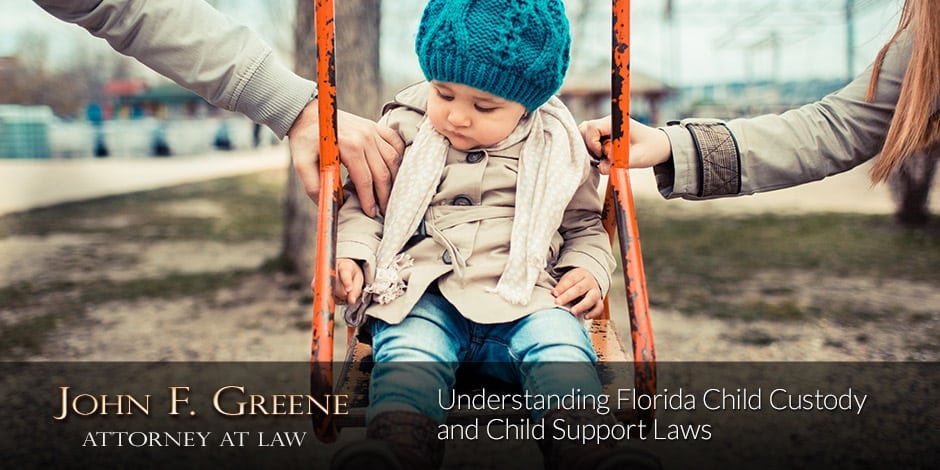
When spouses undergo a divorce, one of the biggest issues they deal with is understanding Florida child custody and child support laws. Under Florida law, both parents are required to fulfill their parental responsibility in terms of spending time with the children and supporting their financial needs.
Florida law is geared towards shared parental responsibility. Parents are typically provided with the opportunity to agree on how children within the relationship will be provided for.
In cases where parents disagree on important decisions, a court will provide direction on how child custody and child support will be handled. Therefore, having an experienced family attorney by your side when undergoing a divorce in Florida is critical.
Understanding Florida Child Custody Laws
Child custody laws in Florida are meant to consider what is in the best interests of the child. A judge will follow the Uniform Child Custody Jurisdiction and Enforcement Act to determine the specific custody framework that both parents will have over their children. In recent times, the word “custody” has been replaced with more relevant terms such as “shared parental responsibility” or “majority time-sharing.” These terms more accurately represent the spirit of equal parental responsibility when raising a child.
In Florida, having legal child custody determines which parent has the final say over educational, disciplinary, medical, and religious decisions regarding the child. In addition, the parent with physical custody is the one who finally decides where the child will live.
During divorce proceedings, you can file for sole or joint custody over children in the relationship. In Sole custody (or sole parental responsibility), the parent has both legal and physical custody of the child/children. In joint parental responsibility, both parents have an equal say over decisions regarding their children. However, one parent will be designated as the primary joint custodian in order to accord the child with a stable home, school, and other important needs.
Florida Child Support Laws
Under Florida law, both parents are required to provide care for their children until they become adults (24 years). Therefore, child support payments may be required from a non-custodial parent in order to help the custodial parent in raising the child/children from the relationship. All children in Florida have a legal right to receive child support and appropriate care from both parents. In fact, when child support disputes end up in court, a judge will always make decisions that are in the best interest of the child.
Child support payments are meant to cover upbringing expenses such as education, health, clothing, shelter, among others. A court will determine the actual amount to be paid by a non-custodial parent, as well as the frequency of payments. The amount to be paid in child support will depend on a non-custodial parent’s income as well as the needs of their child. The Florida Department of Revenue typically enforces child support payments, putting in place a system where the child support amount is withheld from the parent’s income. However, child support can also be paid via credit card, eChecks, or even money transfer services (such as Moneygram) as long as you can retain evidence of all receipts of payment. The Child Support eServices System supports these payment methods.
 If you live in the cities of Crestview, Santa Rosa Beach, Panama City, Niceville, and other surrounding areas, Destin family Attorney John F. Greene can help. Attorney Greene has knowledge and experience in handling child custody and child support cases following a divorce. It is important for you to have your best interests represented during such proceedings. Call Attorney Greene at 850-424-6833 or visit his website to schedule a consultation.
If you live in the cities of Crestview, Santa Rosa Beach, Panama City, Niceville, and other surrounding areas, Destin family Attorney John F. Greene can help. Attorney Greene has knowledge and experience in handling child custody and child support cases following a divorce. It is important for you to have your best interests represented during such proceedings. Call Attorney Greene at 850-424-6833 or visit his website to schedule a consultation.









